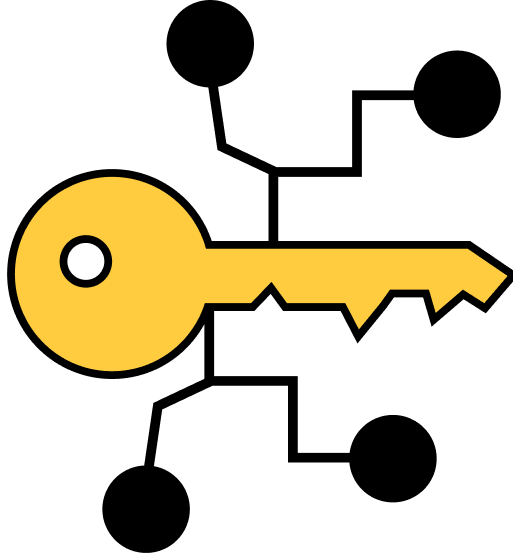Whuffie
Whuffie is the ephemeral, reputation-based currency of ‘s science fiction novel and his short story “Truncat”. This book describes a : all the necessities (and most of the luxuries) of life are free for the taking. A person’s current Whuffie is instantly viewable to anyone, as everybody has a giving them an interface with the Net.
The term has since seen some adoption as a synonym for , including its use in the title of the book The Whuffie Factor.
In 2016, Doctorow stated that Whuffie “would make a terrible currency.”
Contents
Explanation
In the novel Down and Out in the Magic Kingdom, industrial-era economic constraints and scarcity-management regimes have been made obsolete by technology: Whuffie has replaced , providing an esteem- and admiration-rewarding motivation for people to do useful and creative things. A person’s Whuffie is a general measurement of his or her overall reputation and is gained (or lost) according to a person’s favorable (or unfavorable) actions. Public opinion determines which actions are favorable or unfavorable. The Whuffie of one who rudely pushes past others may suffer, as she incurs the disapprobation of those pushed, or witnesses of the event. A much-loved symphony, on the other hand, continues to earn the composer Whuffie as more people enjoy it. Some judgments contributing to an individual’s Whuffie are automatic and require no conscious thought on the part of others, as all possess brain chips. As brain dumps allow machines to carry consciousness, the machines can do the thinking for people and allow them to know the results automatically.
Two different methods are explained as being right-hand (the amount you directly attribute to an action) and left-hand (an aggregate of the right-hand Whuffie of the people who have given you left-hand).
Example: A person gave me 50 right-hand (direct) Whuffie for a song I wrote, that they like. I also received 100 left-hand Whuffie from the people that that person has also given right-hand Whuffie to (indirect).
While there are few details in the novel of how this system actually works, it is described in idealistic terms:
- “Whuffie recaptured the true essence of money: in the old days, if you were broke but respected, you wouldn’t starve; contrariwise, if you were rich and hated, no sum could buy you security and peace. By measuring the thing that money really represented—your personal capital with your friends and neighbors—you more accurately gauged your success”.
A person with a score of 0 is just as capable of giving and revoking Whuffie as someone with a score of 1,000,000. The person with the million-point score would be invited to parties and elite events while his bottomed-out counterpart would probably not even be allowed into reputable clubs or restaurants; but both of their opinions on someone else would count for the same amount of gross Whuffie.
Like all economic systems, Whuffie has effects that seem undesirable to many. It might tend to favour popular speech at the expense of public discourse, and it could frequently be uninformative: if a person has a high Whuffie score, is it for guitar playing or auto repair? However, both of these are already the status quo under a money economy, and the concept of weighted Whuffie helps make better decisions on a person-by-person basis, and thus is more flexible than rating someone by their bank account. Also, the Whuffie system (in the book) keeps a public history of how each person’s Whuffie was earned, unlike the secret origins of many people’s money.
Similarities to other stories
- wrote of a similar system based on admiration in his story “All Around the Universe”, written between 1967 and 1971.
- uses a similar currency system for the Nasqueron Dwellers based on “Kudos” in his novel .
- uses a reputation system called “strakh” as currency in his short story , published in 1961.
- In ‘ second novel of the , , members of the “Darknet”, a shared and , have social rankings derived by ratings from their peers, which are intended to reflect a members contribution to the Darknet society.
- and has a similar society centered on a reputation-based economy in which the basic needs of all—sustenance and shelter—are accounted for.
The Whuffie Bank
The launched as a non-profit company at the conference on September 15, 2009. The organization aims to create a reputation currency for social networks. However, their URL and Twitter feed became inactive on April 2012. As of December 2013 the website is inaccessible and relays the message “No more Whuffies :'(.”
In use
The convention is known for compensating its volunteers for their time using Whuffies, a paper currency inspired by . It can be traded in for T-shirts, a place to sleep overnight, or a refunded convention membership.
Etymology
Doctorow has indicated that the word Whuffie is a made-up word he used in high school, and is not a vocalization of an abbreviation (in the style of ‘Gazoo’ – GSU, or Grad Students Union) or of as is often believed.
Whuffie is mentioned in Doctorow’s , but appears to be in the general sense of building reputation.














 Twitter
Twitter
 Telegram
Telegram
